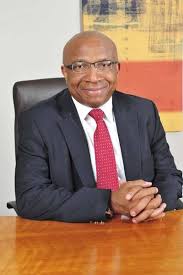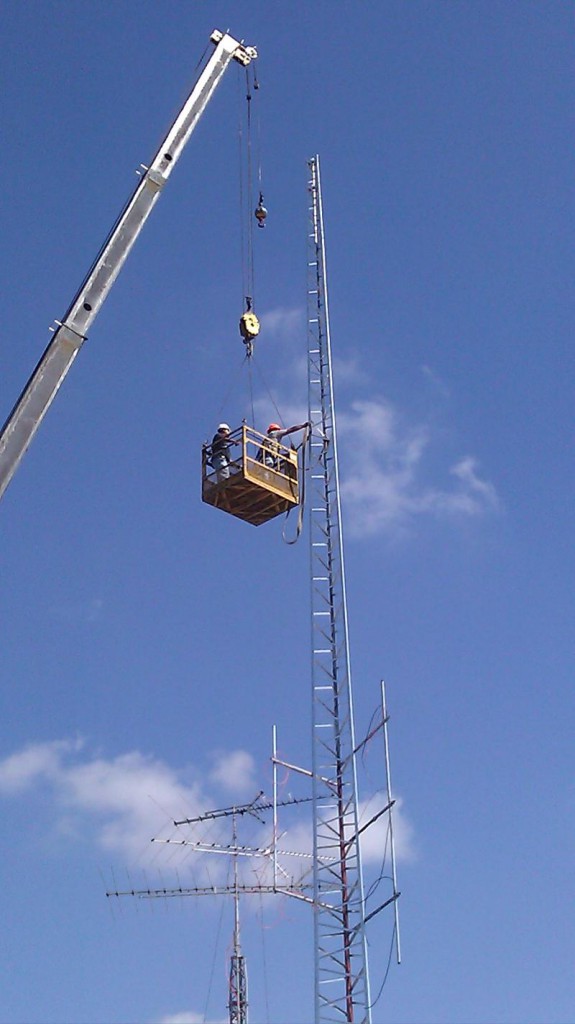 More than two dozen independent broadband providers are busily wiring parts of the Republic of South Africa with fiber to the home service in a rush to relegate telephone company giant Telkom’s DSL offerings into the dustbin of irrelevance.
More than two dozen independent broadband providers are busily wiring parts of the Republic of South Africa with fiber to the home service in a rush to relegate telephone company giant Telkom’s DSL offerings into the dustbin of irrelevance.
The pace of fiber broadband expansion is happening so rapidly, Telkom CEO Sipho Maseko has had to warn investors the phone company’s continued dependence on its copper infrastructure could threaten the company’s future. Consumers and businesses are demanding better broadband in a country that has languished under Telkom’s insistence on sticking with copper infrastructure that has delivered slow Internet speeds and stingy data caps for more than a decade.
The Sunday Times notes South Africa’s fiber revolution is delivering speeds up to 1,000Mbps on a network that literally sells itself. Fiber providers deliver speeds 250 times faster than ADSL and are helping make usage caps and usage-based billing a part of South Africa’s past. New fiber builds are announced in neighborhoods, towns, and cities almost weekly, many driven by residents in neighborhoods pooling together to attract competition. Independent contractors are winning a large share of the broadband deployment business, able to string fiber cables less expensively than Telkom and its bureaucracy.

VUMA is a fiber service provider in South Africa, following Google Fiber’s “fiberhood” example to expand service.
“The rate at which consumers are turning to alternatives to Telkom to build these networks is remarkable,” the Times editorial states. “Until a year ago, [Telkom’s] absolute dominance over the ‘last mile’ into homes and businesses seemed set to last for years. No more. Telkom’s core business is suddenly threatened.”

Maseko
The projects are large and small. Sea Point in Capetown, Blairgowrie in Johannesburg, Kloof and Hillcrest in Durban are all working with start-up providers instead of Telkom. Many are convinced Telkom management is either incompetent or has been more interested in the welfare of its executives than its customers, and more than a few are voting with their feet.
The most aggressive stampede to fiber broadband is occurring in rich suburbs and gated communities prevalent in affluent areas. These are the customers Telkom cannot afford to lose and many are unlikely to ever return to what used to be the state-owned telephone company. The Times argues the longer Telkom pretends it still has a monopoly, the worse things are going to be for a company in for a rude shock.
“For the first time, the lumbering incumbent, which once held an absolute monopoly over fixed lines, is having to compete for consumers’ attention with a range of nimble start-ups that promise superb broadband at decent prices, and often on an ‘open access’ basis — meaning consumers are free to choose Internet Service Providers, and service providers can get direct access to the infrastructure,” the newspaper writes.
The newspaper scoffed at Telkom’s wasted opportunities and poor management decisions that now threaten its future viability.
Among Telkom’s biggest failures was a $815 million investment beginning in 2007 on an “ill-fated adventure” in the Nigerian wireless marketplace. Telkom said it was “misled” by several Nigerian businessmen into bleeding billions of South African Rand into a wireless company that used CDMA technology in a country dominated by cheap GSM providers. A shaky network of cellular dealers incapable of attracting new customers only made things worse. The venture’s losses were so huge, it attracted the attention of South African legislators who questioned the wisdom of Telkom investing in Nigeria while allowing South African broadband to stagnate from inadequate investment.

When two dozen fiber to the home competitors began installing fiber to the home service in South Africa, Telkom grudgingly has started to compete with fiber builds of their own. They are likely to face two new national fiber competitors, in addition to the independents, within months.
A year earlier, Telkom also proved less than competent when it entered South Africa’s pay television business. In 2006, Telkom earmarked more than $600 million to be spent on a venture unlikely to win enough customers from dominant MultiChoice to be sustainable. By 2009, Telkom decided to sell most of its stake in the venture at fire sale prices and still found few interested buyers.
Telkom’s management has been accused of gross incompetence, particularly for spending resources on poorly researched business ventures where it lacked experience. The Times asked readers to ponder what South African telecommunications would look like today if Telkom instead spent its almost $2 billion dollars in Nigerian and pay television losses on fiber broadband upgrades inside the country. Since 2006, Telkom preferred to spend as little as possible on network upgrades while trying to convince South Africans to stick with copper-delivered DSL and its variant VDSL, available only in very limited areas. Telkom’s business decisions today still leave most of its customers with no better than 4Mbps DSL.
The question South African business observers are asking is whether Telkom’s new interest in fiber is too little, too late. Mobile operators Vodacom and MTN are planning to build their own competing national fiber to the home networks to compete with Telkom as well.


 Subscribe
Subscribe


 Hong Kong Telecom Group (HKT) chief technical officer Paul Berriman believes copper phone wiring is a thing of the past and is nonplussed by efforts to wring a few more years of life out of infrastructure that cannot reliably support high-speed Internet and is costly to maintain. The only solution that makes sense is to get rid of the copper and replace it with fiber optic wiring.
Hong Kong Telecom Group (HKT) chief technical officer Paul Berriman believes copper phone wiring is a thing of the past and is nonplussed by efforts to wring a few more years of life out of infrastructure that cannot reliably support high-speed Internet and is costly to maintain. The only solution that makes sense is to get rid of the copper and replace it with fiber optic wiring.
 Italy’s power utility Enel
Italy’s power utility Enel  Such a deal could potentially lock out Telecom Italia, which is already upset with the government over ownership issues, technology and its inability to buy into the Metroweb project.
Such a deal could potentially lock out Telecom Italia, which is already upset with the government over ownership issues, technology and its inability to buy into the Metroweb project. The two largest telecom companies in Zimbabwe believe broadband access isn’t just an essential utility —
The two largest telecom companies in Zimbabwe believe broadband access isn’t just an essential utility —  At the outset in Victoria Falls, Fibroniks will offer unlimited use packages up to 100Mbps, with a commitment customers can access whatever they want, whenever they want, at a guaranteed fixed monthly price. Liquid Telecom already supplies fiber service in the capital city of Harare, but Tudor believes getting into smaller communities in the country is essential.
At the outset in Victoria Falls, Fibroniks will offer unlimited use packages up to 100Mbps, with a commitment customers can access whatever they want, whenever they want, at a guaranteed fixed monthly price. Liquid Telecom already supplies fiber service in the capital city of Harare, but Tudor believes getting into smaller communities in the country is essential.